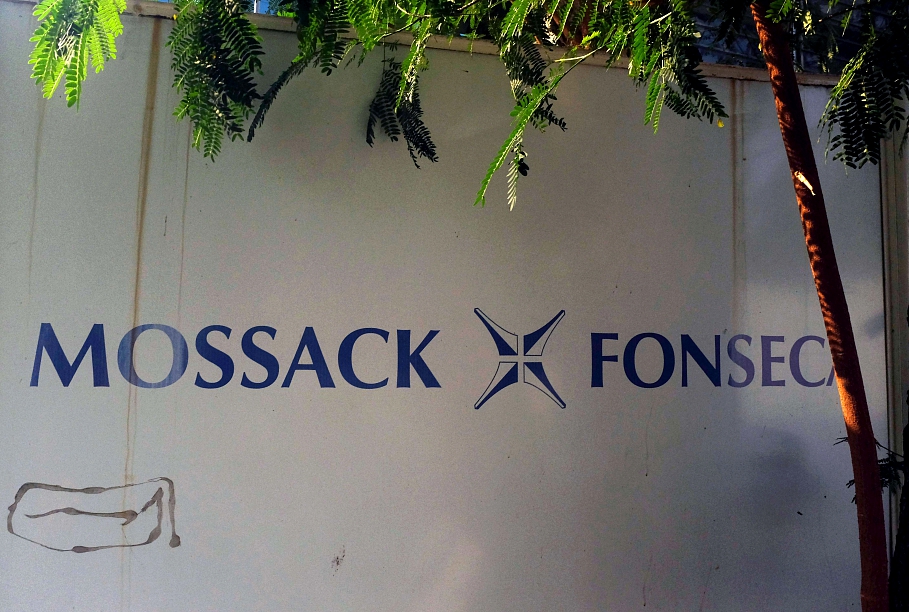However, despite uncovering a link to Latvian bank Rietumu and turning up information on a complex series of offshores connected to a prominent politician, reporters were generally presented with an unwillingness to respond to questions at all.
As previously reported by LSM, Mossack Fonseca operaed a Riga bureau from 2009 until the end of 2015.
According to the show, Mossack Fonseca helped register offshore companies including "Annalisa Limited" which was part of a dizzyingly complex and opaque ownership structure for one of Latvia's largest concerns, "Ventspils nafta" that has been linked to Aivars Lembergs, mayor of Ventspils and a leading figure in the Greens and Farmers Union political party despite being on trial for large-scale graft for years.
Lembergs has also described as a risk to national security by party colleague (then-Defense Minister and now-President) Raimonds Vejonis but that did not stop Lembergs participating in recent talks to choose a Prime Minister for Latvia.
Lembergs has always denied any offshore impropriety and his graft case continues. However, De Fato uncovered a document proving a link via Mossack Fonseca between companies in Lichtenstein and the British Virgin islands with which his name has been linked in the past.
The document includes a specific statement that the two companies have one (unnamed) beneficial owner but that the directors of the two companies should be different so there is not "an immediate visible link" between the two.
However, a lawyer involved in the ongoing legal wrangles about the ownership structures declined to comment, as did a former employee of Mossack Fonseca in Riga, who even refused to admit journalists to his office to ask questions.
A further refusal to comment came from Rietumu bank, a bank specializing in non-resident clients, after De Facto uncovered a letter between Mossack Fonseca and disgraced offshoring specialists France Offshore which mentioned making use of a "Latvian bank".
Rietumu is known to have had France Offshore clients on its books and De Facto claimed it had uncovered evidence of links between Rietumu and at least even offshore entities.
However, at least some people were prepared to justify their use of offshore ownership structures as holding companies for their money.
Businessman Valdis Lejnieks told De Facto he had used a British Virgin Islands holding company for his assets because of the extra security it provided.
Offshoring was "entirely legitimate" and was chosen because of "greater security for investments in the current unstable financial situation," Lejnieks said in a statement.
The fact that offshore involvement does not automatically mean anything illegal, was also supported by tax collectors. The State Revenue Service (SRS) also admitted that at the moment there is no clear estimate of how offshoring affects the state budget.
"It is clear that offshores are used in two ways: both as a legal means, and of course, to conceal the true beneficiaries of these offshore funds," said SRS deputy director Dace Peleka.






























